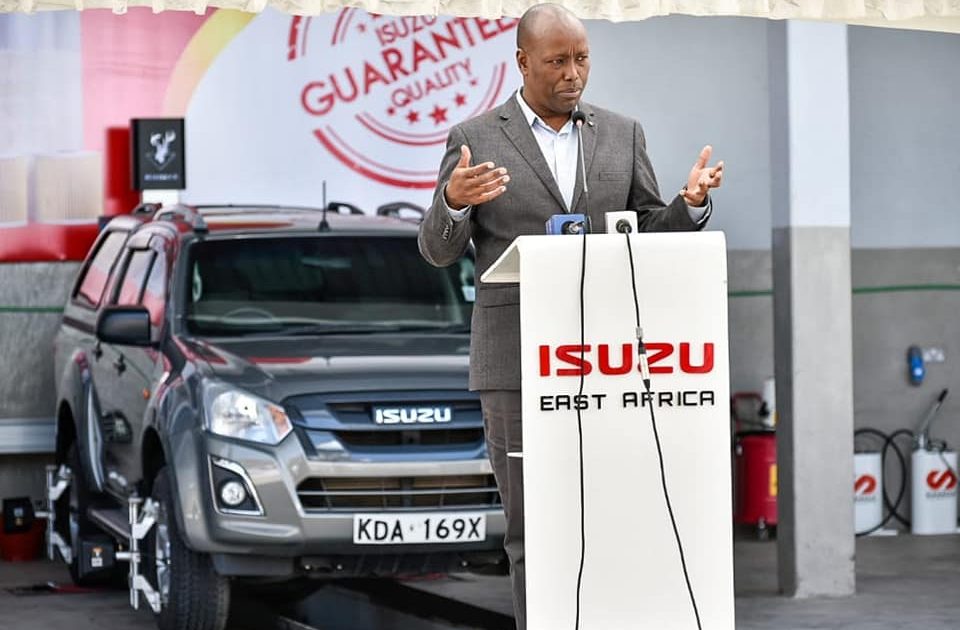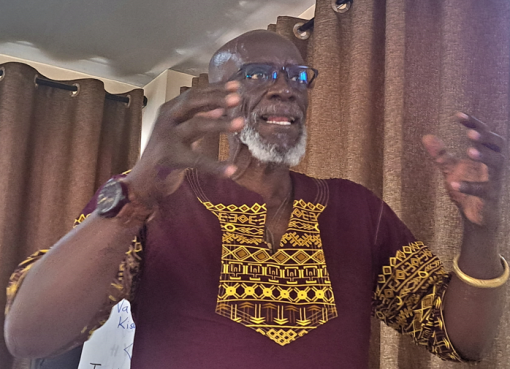Nakuru County Government is wooing vehicle making companies to invest in local production of spare parts within Special Economic Zones and Industrial Parks in the devolved unit.
Governor Lee Kinyanjui observed that as the National government steps up its campaign to encourage local assembly of vehicles, setting up of plants at County level to locally manufacture spare parts will greatly bolster Kenya’s industrial sector as a means of creating jobs.
Speaking to KNA in Nakuru Wednesday, Kinyanjui observed that most big car dealers and assemblers were opening authorized dealerships in major towns within the devolved unit.
“Through public-private-partnership agreements, automobile spare part plants can be set up. This initiative has the potential of attracting investors who set up factories with enough capacity to satisfy local and regional demand of spare parts.
“Many dividends will be reaped including creation of employment, technology transfer and contribution to the gross domestic product. The economy will greatly benefit from direct injection of cash and creation of additional employment for local suppliers of parts and accessories to the assembly plants,” explained the governor.
Last week, Kinyanjui officially inaugurated the Sh50 million Njewa Automobile, an Isuzu authorized outlet in Naivasha Town.
Overreliance on imported spare parts, stated the county boss, had constantly diluted growth in the automotive sector, inhibiting the intended impact to the economy even after the National Government introduced the National Automotive Policy.
The policy is designed to support the growth and transformation of the automotive industry in Kenya into a significant contributor to the national GDP under manufacturing by 2023.
The policy also aims to drive employment generation and skills development. Statistics from other countries show that local assemblies create more formal jobs on average compared to vehicle import trades, thereby increasing employment opportunities ten-fold across the industry value chains.
“With the Automotive Policy, the automobile industry has a potential to create over 150,000 jobs in Kenya directly or indirectly if the right investment environment is put in place.
When we add manufacture of spare parts to local assembly of vehicles, we create formal, quality and meaningful jobs where employees can afford to pay taxes and technology transfer,” noted Mr Kinyanjui.
The governor said his administration has been developing policies and enacting laws that have made it profitable for local companies to export again, boosting their capacity to expand within the country while focusing on growth and productivity of Small Medium Enterprises.
“We have been working with other agencies in both the National and County government and the private sector to facilitate potential investors through the establishment of a one-stop desk where they are issued with all the required documentation. We have in place deliberate and predictable policy interventions,” he said.
“We are also exploring direct use of steam from Africa’s largest geothermal power plants at Menengai and Olkaria for small and medium level agricultural enterprises as an initial step towards setting up of cottage industries,” he said.
Kinyanjui said continued improvement of road infrastructure including construction of two interchanges along the Nairobi-Nakuru-Eldoret and SGR line at Naivasha will ease transportation to and from the County, which he said is vital for industrialization.
“We also invite investors to take advantage of the 1,000 acres of land in Satellite along the Mai Mahiu- Suswa Road that has been gazetted as an industrial zone,” said Kinyanjui.
County Executive Committee Member Trade and Tourism Mr Raymond Komen observed that the new flow of local and foreign investments into Nakuru was being aided by the County’s location, good infrastructure, affordable power from Menengai and Olkaria geothermal plants, the upcoming airport in Lanet and the Standard Gauge Railway (SGR) now connecting Naivasha and the Mombasa Port.
He said the national government had gazetted 404.7 hectares (1,000 acres) in Mai-Mahiu within Naivasha Sub-county as a Special Economic Zone as industrialization is the driving force for any economy.
The construction of the Naivasha Industrial Park and Dry Port, he said have raised the profile, and will open up Nakuru as a commercial hub in East African region.
“No County has grown without industrialization. This is why the Government has prioritized the manufacturing sector under the Big Four Agenda. With its agricultural hinterland, Nakuru County is a major source of raw materials for industries. Geographically, the town is centrally located in relation to the rest of the country and is therefore more accessible,” stated the CEC.
Nakuru, whose administration continues to formulate policies that promote the competitiveness of local industry, encourage value addition and diversity of locally manufactured products. “County Assemblies need to enact legislations that protect and encourage investors,” added Mr Komen.
Kenya Association of Manufacturers (KAM) South Rift Chairperson Ms Peris Mbuthia described the entry of new factories into the devolved unit as a pointer to Nakuru becoming the second most preferred investment destination in the country after Nairobi.
A recent survey on the Gross County Product by the Kenya National Bureau of Statistics had stunning revelations to the effect that Nakuru is the second biggest economy after Nairobi, ahead of bigger cities of Mombasa and Kisumu.
The County’s 6.1 percent contribution to the economy, second to Nairobi’s 21.7 percent may rise further following ongoing and planned industrial developments expected to create more wealth and employment opportunities.
by Anne Mwale





